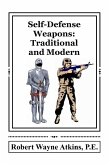In Schrödinger's Nation, I explore the paradoxes and contradictions that define modern politics, drawing inspiration from the famous thought experiment of Schrödinger's cat in quantum mechanics. Just as the cat in the box is simultaneously alive and dead until seen, nations today often exist in states of duality, simultaneously progressive and regressive, united and divided, thriving and struggling. This book delves into how these paradoxes shape political discourse, policy-making, and national identity in an increasingly complex world. Through this novel synthesis, the aim is to provide a framework that not only reimagines political theory but also offers practical tools for understanding and navigating the complexities of modern governance. This book explores how quantum principles can illuminate the dynamic, uncertain, and interconnected nature of political phenomena, addressing both the ontological (the nature of political reality) and epistemological (the study of how we know and measure that reality) aspects of political science. Traditional political models often do not capture the nuanced, non-linear dynamics of contemporary political systems. These models rely on deterministic assumptions, where causes lead directly to predictable effects. However, political phenomena are rarely straightforward. Uncertainty, interconnectedness, and emergent behaviors often disrupt established patterns. This book introduces quantum mechanics as an analytical lens to address these challenges. Concepts such as uncertainty, superposition, and entanglement offer powerful metaphors and frameworks for understanding political unpredictability, the simultaneity of states, and global interdependence. The evolution of political theories, from classical to modern paradigms, reveals a trajectory toward recognizing complexity. Traditional state-centric theories have given way to perspectives that account for global networks, information flows, and the role of non-state actors. Complexity science has paved the way for quantum approaches, emphasizing the interplay of diverse elements within systems and the emergent properties that arise from their interactions. In quantum mechanics, particles exist in multiple potential states until seen or measured. Similarly, political outcomes are not fixed but exist in a range of possibilities influenced by decisions, events, and external factors. This superposition of political states allows for a richer understanding of the flux and uncertainty inherent in governance. The observer effect in quantum mechanics highlights how observation alters the state of a system. In politics, media coverage, public opinion polls, and other forms of observation shape outcomes. Understanding this dynamic emphasizes the need for reflexivity in political analysis and decision-making. Political systems and actors can occupy multiple roles or states until events force a resolution. This fluidity mirrors quantum systems and underscores the adaptability and resilience of political entities in the face of change. The inherent uncertainty of political decisions requires a probabilistic approach. Schrödinger's Nation emphasis on probability over determinism offers a framework for modeling political futures, where multiple outcomes coexist as potentialities. A single political decision can have far-reaching and unpredictable consequences, akin to particle interactions in quantum systems. Understanding these cascades can enhance strategic planning and policy formulation. Quantum entanglement describes how particles, once connected, influence each other regardless of distance. In global politics, actions. In the intricate tapestry of modern political landscapes, where change is both rapid and complex, we introduce a groundbreaking theoretical model, the Political Evolution Operator (PEO), developed by me to enhance our analytical capabilities in political sc
Hinweis: Dieser Artikel kann nur an eine deutsche Lieferadresse ausgeliefert werden.
Hinweis: Dieser Artikel kann nur an eine deutsche Lieferadresse ausgeliefert werden.








